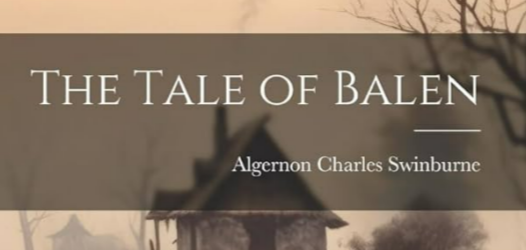Chapter II-The tale of Balen
byChapter II – The tale of Balen begins not with grandeur, but with the quiet shift of seasons, when spring yields to summer’s warmth. Balen, having been held captive, walks free once more—not in glory, but in resolve, carrying a quiet dignity that hardship could not erase. Though dressed in simple garments and stripped of royal favor, his soul remains steadfast, driven by a sense of purpose that no chain could break.
At King Arthur’s court, the arrival of a noblewoman dressed in sorrow and silk captures every gaze. She carries a sword none may lift unless pure in heart and unsullied by deceit. One by one, Arthur’s finest—Launcelot, Tristram, Lamoracke—fail the test, leaving the hall in stunned silence, their strength humbled not by the sword’s weight, but by the invisible burden of judgment it bears.
Balen, though recently freed and unknown to many, steps forward with quiet courage. His offer to try is met with doubt and a measure of disdain, for how could a man with no title succeed where kings and warriors failed? Yet as his hand closes around the hilt, the sword slides free, revealing the true nature of worth: not lineage or fame, but inner virtue and unwavering will.
Gasps ripple through the court, astonishment coloring every face, including that of Queen Morgause, who watches with eyes too sharp to miss what others overlook. The maiden, however, is not moved to joy. Instead, her sorrow deepens, for she recognizes the prophecy now set in motion—a cruel future where the sword, though drawn in honor, will lead its bearer to tragedy.
She implores Balen to return the blade, to break the cycle of misfortune it carries, but he refuses. His resolve is not born from pride, but from the belief that destiny must be faced, not fled. The sword, a symbol of power and ruin, becomes his burden to carry, even as the court watches in quiet dread.
What follows is a moment of uneasy triumph. Balen, praised for strength, is also marked by fate. Those who once overlooked him now see both a hero and a harbinger, unsure which future he will fulfill. The maiden departs in silence, her warning left echoing in the hall like a distant drum of coming war.
This scene serves as a turning point, where status gives way to spirit, and fate begins to claim its due. Balen’s act of drawing the sword elevates him in the eyes of men, yet burdens him with a destiny from which there is no retreat. In Arthurian legend, such moments often blur the line between blessing and curse.
Historically, tales like this reflect a deep belief in moral worth over birthright—a theme consistent with medieval romance, where true nobility lies in conduct, not title. Balen, despite having been imprisoned and dismissed, becomes the narrative’s axis, showing that endurance and virtue are more lasting than fame. Yet in doing so, he also becomes a vessel for tragedy, as if greatness must always court sorrow.
The presence of Queen Morgause and other powerful figures hints at political tension beneath the surface. Courtly spectators are not mere bystanders; their reactions shape how events unfold. This layer of intrigue adds depth to Balen’s victory—it is not just about lifting a sword, but about disrupting expectations and provoking unease in those who believe power should remain predictable.
For modern readers, this chapter resonates in its portrayal of unseen strength. Balen’s triumph reminds us that humility often masks potential, and that quiet strength can exceed loud ambition. Yet it also cautions us that even the most righteous choices carry consequences, especially when destiny has already laid the path.
By its close, the chapter leaves the reader with an image both uplifting and grim. A man, once disregarded, stands tall with a sword meant for kings—while shadows gather at his feet. His journey is only beginning, but the storm that follows has already begun to stir, unseen yet unavoidable.

